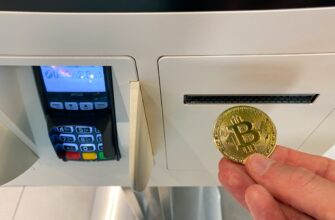In the world of cryptocurrency, your seed phrase is the master key to your digital wealth. If exposed, it can lead to irreversible theft. That’s why anonymizing your seed phrase in cold storage is critical—it ensures no one can link it back to you or access it online. This article covers best practices to keep your seed phrase anonymous and secure, reducing risks like hacking or physical theft. By following these steps, you’ll protect your assets with confidence. Let’s dive in.
- What is a Seed Phrase and Why Anonymize It?
- Cold Storage Explained: Your Offline Fortress
- Best Practices for Anonymizing Your Seed Phrase in Cold Storage
- Common Mistakes to Avoid When Anonymizing Seed Phrases
- Frequently Asked Questions (FAQ)
- What does anonymizing a seed phrase mean?
- Is it safe to store my seed phrase in a password manager?
- How can I recover funds if I lose my anonymized seed phrase?
- Should I use a bank safe deposit box for anonymization?
- How often should I update my anonymized seed phrase storage?
What is a Seed Phrase and Why Anonymize It?
A seed phrase, typically 12-24 words, generates the private keys for your crypto wallet. It’s the ultimate backup for recovering funds. Anonymizing means storing it in a way that hides any connection to your identity or online presence. Why is this vital? If your seed phrase is linked to you (e.g., through digital metadata or personal notes), hackers or thieves could target you. Anonymization adds a layer of obscurity, making it harder for attackers to identify or exploit your backup. For instance, never store it with your name or account details—treat it like a secret code only you can decipher.
Cold Storage Explained: Your Offline Fortress
Cold storage keeps your seed phrase completely offline, away from internet-connected devices. This prevents remote hacks, malware, or phishing attacks. Common methods include hardware wallets, paper backups, or metal plates. Unlike hot storage (e.g., software wallets), cold storage ensures your seed phrase isn’t exposed to online threats. Anonymizing within cold storage means ensuring the physical or offline medium itself doesn’t reveal ownership. For example, use generic, unmarked containers instead of personalized items. This combination—offline and anonymous—creates a robust defense against both digital and physical breaches.
Best Practices for Anonymizing Your Seed Phrase in Cold Storage
Follow these step-by-step best practices to anonymize your seed phrase effectively. Always prioritize physical security and simplicity to avoid errors.
- Use Non-Digital, Unmarked Storage: Write your seed phrase on durable materials like stainless steel plates or fireproof paper. Avoid digital formats (e.g., photos or text files) that can be traced. Ensure no personal identifiers are included—just the words in order.
- Employ Encryption or Obfuscation: Add a passphrase (an extra word) to your seed phrase for enhanced security. Store this separately. Alternatively, split the phrase into multiple parts and hide them in different anonymous locations (e.g., a safe deposit box under a pseudonym).
- Secure Physical Locations: Store backups in tamper-evident containers like sealed envelopes or lockboxes. Choose diverse, discreet spots—e.g., one copy at home in a hidden safe and another in a secure off-site location. Never label them with your name or crypto references.
- Limit Access and Knowledge: Share your seed phrase with no one. If you must involve a trusted person, use a secure method like a dead man’s switch without revealing your identity. Document recovery instructions anonymously in a separate, encrypted note.
- Regular Audits: Check your storage annually for damage or tampering. Test recovery with a small transaction to ensure accessibility, but do so cautiously to avoid exposure.
Common Mistakes to Avoid When Anonymizing Seed Phrases
Steer clear of these pitfalls to maintain anonymity and security:
- Storing Digitally: Never save your seed phrase on devices, cloud services, or password managers—these can be hacked or linked to you.
- Using Personal Items: Avoid writing it on objects tied to your identity, like a diary or labeled USB drive, which could be traced back in a theft.
- Overcomplicating Setup: Don’t create overly complex splitting schemes that you might forget. Keep it simple and testable.
- Ignoring Physical Risks: Failing to protect against environmental threats like fire or water can destroy your backup. Use resilient materials.
- Revealing Through Behavior: Be discreet about your crypto activities; discussing storage methods publicly can attract unwanted attention.
Frequently Asked Questions (FAQ)
What does anonymizing a seed phrase mean?
Anonymizing ensures your seed phrase has no ties to your identity, such as personal details or digital footprints. This prevents targeted attacks by making the phrase untraceable to you.
Is it safe to store my seed phrase in a password manager?
No, password managers are online and vulnerable to breaches. Always use offline cold storage for true anonymity and security.
How can I recover funds if I lose my anonymized seed phrase?
Without the seed phrase, recovery is impossible. That’s why multiple anonymous backups in secure locations are essential. Consider using a multi-sig wallet for added redundancy.
Should I use a bank safe deposit box for anonymization?
Yes, but rent it under a pseudonym if possible and combine it with other methods like splitting the phrase. Ensure the bank doesn’t require ID linking to the contents.
How often should I update my anonymized seed phrase storage?
Only if you suspect compromise or when setting up a new wallet. Regular checks (e.g., yearly) are enough to ensure integrity without frequent changes that increase risk.
In summary, anonymizing your seed phrase in cold storage is non-negotiable for crypto security. By using offline, unmarked methods and avoiding common errors, you shield your assets from threats. Start implementing these best practices today to safeguard your digital future with peace of mind.








